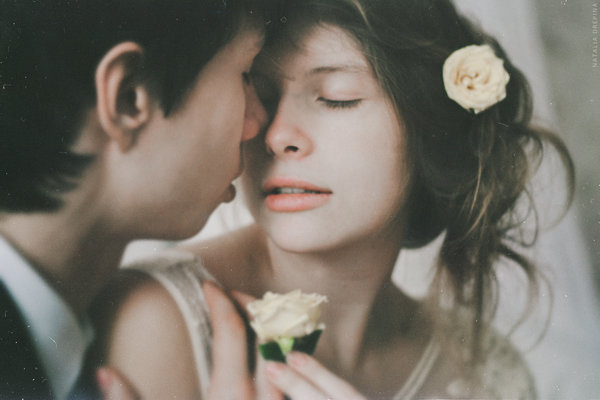Falling in love can be a magical and enriching experience. But there are some situations when the right thing to do is fall out of love.
We all know that there are cases when “being in love” with a particular person brings suffering to our life, instead of health and harmony. One example for all: when the falling in love is not reciprocal. If you are in love with someone, but he/she is not in love with you, something is off. Or think about those cases when a relationship has ended and you’ve parted ways. If the state of being in love persists, this can be painful. If we knew how to gently and consciously fall out of love, wouldn’t that make things easier?
The problem is that there is a difference between experiencing love, which is always beautiful, and the condition of “falling in love.” The way I see it, falling in love is like an altered state of consciousness, and if this sounds like a wild statement, I encourage you to have a look at the video below where I explain why.
If falling in love is an altered state of consciousness, then it should be possible to gracefully step out of it. So let’s have a look at some practical ways we can deal with “falling in love” when this is not conductive to our growth.
The most important thing to realize is the following: when we are “in love with someone,” we are actually in love with two different people or entities. One of them is the actual person in front of us. The other one, so to speak, is the “universal feminine” or “universal masculine,” a reflection of our inner feminine or masculine qualities that we project onto our lover. To use a fancy word, we are projecting our feminine or masculine archetypes on our lovers.
When we are in love with someone, it’s perfectly normal that we project our masculine or feminine internal archetype on him or her. We constantly deal with a mixture of projection and reality. But in some situations, this mixture can become painful. After breaking up, for example, for some time our projected archetype may still be attached to our ex-partner. This condition creates the feeling of being in love with someone although, somehow, we feel that that isn’t the right thing to do.
So how do we untangle this mess?
By paying attention, we are able to distinguish feelings that refer to the actual, individual person, from those that refer to the masculine or feminine projection.
In general, emotions that feel “universal,” and that we would express with the words “never,” “always,” or “totally” are referring to the universal masculine or feminine. For example: “I will never find anyone like him,” “I will always miss her,” “She is the only one who can make me happy”—all these are feelings and thoughts that do not directly relate to the individual person, but rather to the universal feminine or masculine archetypes. I call these “universal feelings.”
In the same line, “he’s the best man I’ve ever met” most likely refers to the universal masculine, because if we are talking about individual men, there is really no real way to know. One particular man might excel in some qualities, while another might be good at others—we’d be comparing apples with pears.
First of all, then, we need to give words to our feelings. What do we feel about the person we are in love with? We can write those feelings down, and try to notice whether they refer to the real, human person with all of his or her defects, or if they refer to the universal masculine and feminine archetypes. We can differentiate the universal from the particular feelings.
With this work done, we can come to an important realization. The universal feelings are not really related to any particular person. With time and patience, we will naturally transfer those feelings to someone else. Which means: there is hope! We will love again, we will be loved again, and we will be happy again. Although we may not manage to have a harmonious relationship with one particular lover, that does not mean we need to renounce to our feelings toward the universal masculine or feminine. They just need to be redirected.
Once we understand the secret of universal feelings, we have made an important step. We can still continue to honour our being in love with someone, while also realizing that this state is a mixture of particular and universal feelings. If the situation requires it, we may consciously separate these two threads to bring some order in our emotional life, maintaining the appreciation we have for the individual person, but freeing our universal feelings so that they don’t keep us clinging.
~
Bonus: The One Buddhist Red Flag to Look out For.
Author: Raffaello Manacorda
Editor: Catherine Monkman
Photo: Natalia Drepina/Deviantart

 Share on bsky
Share on bsky





Read 8 comments and reply